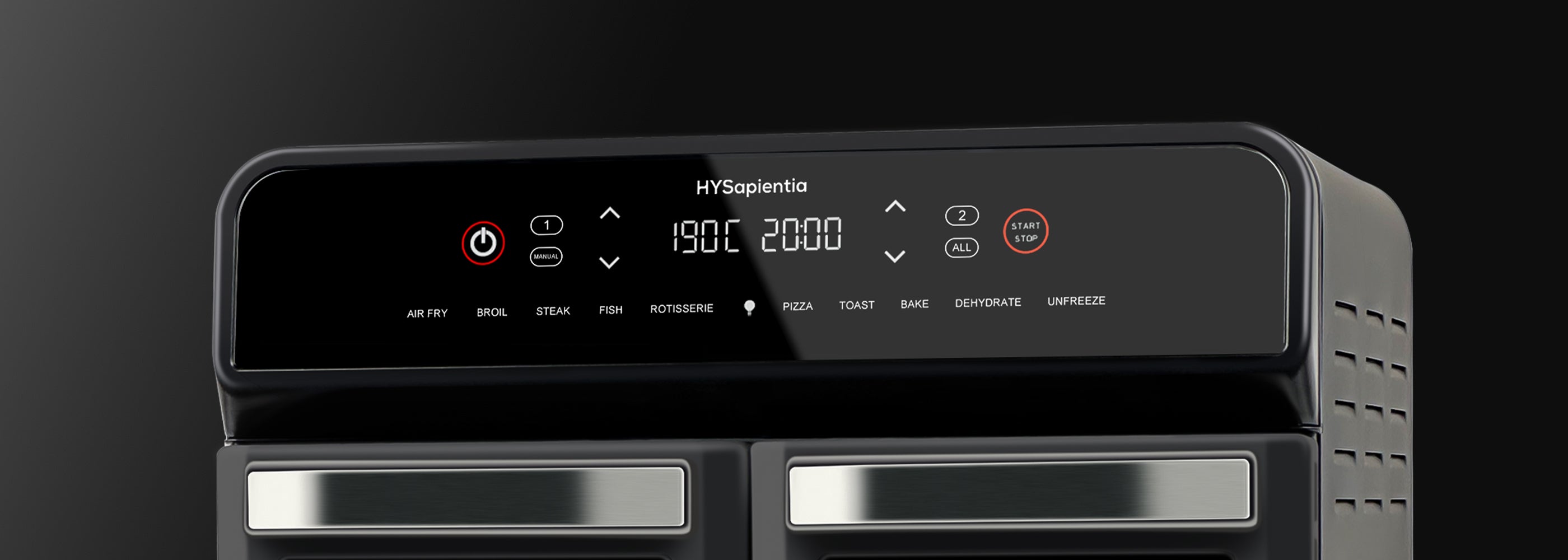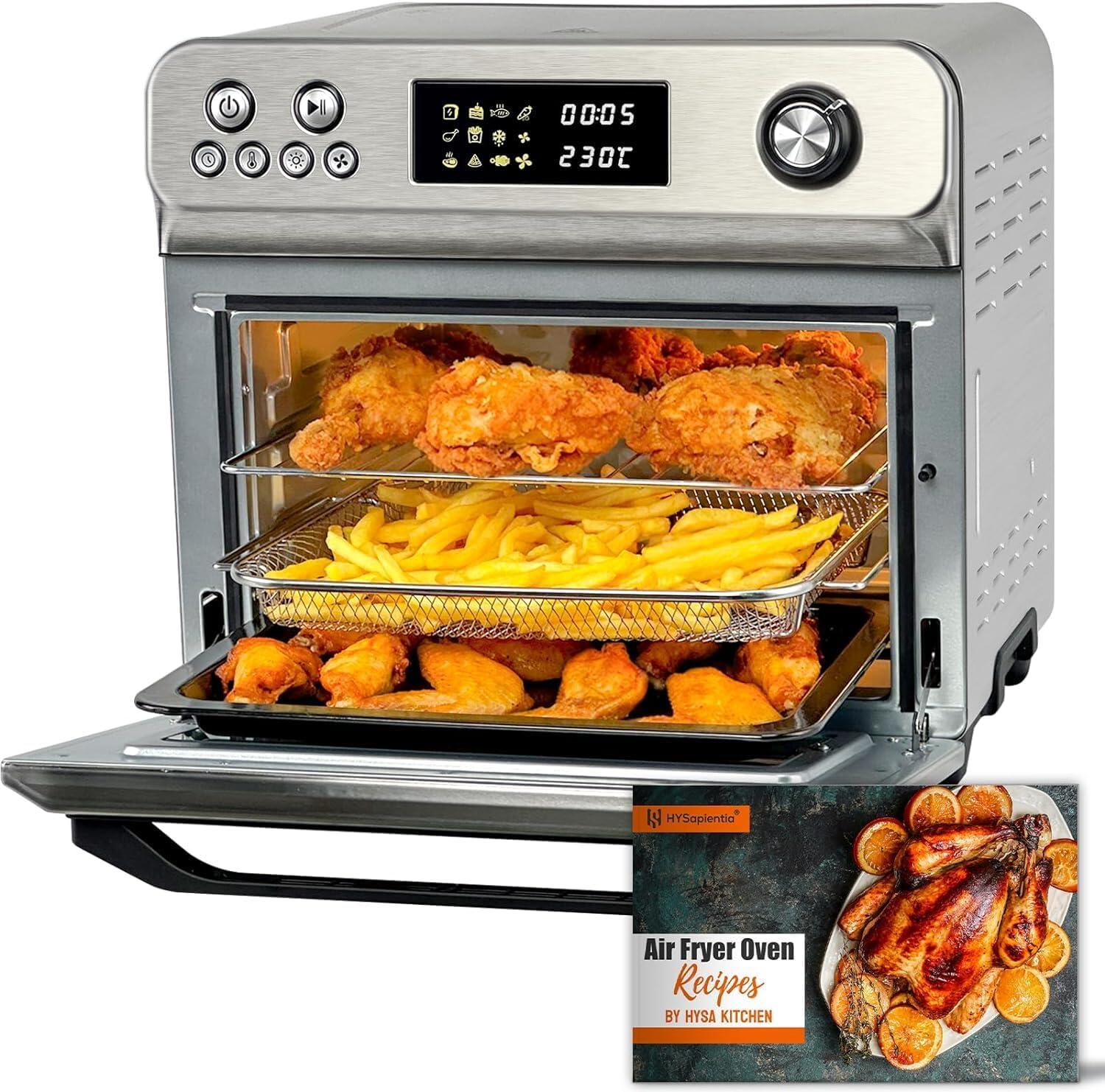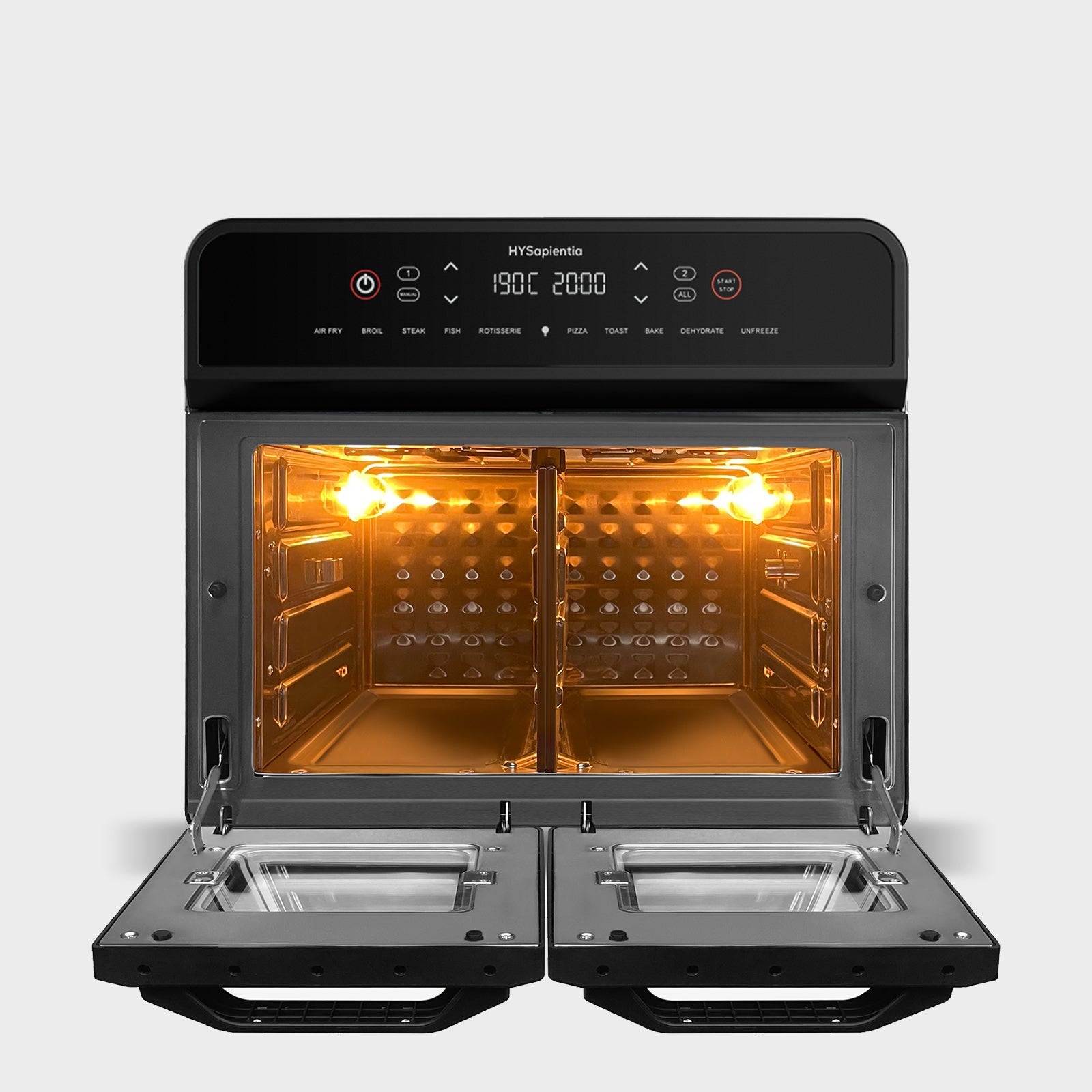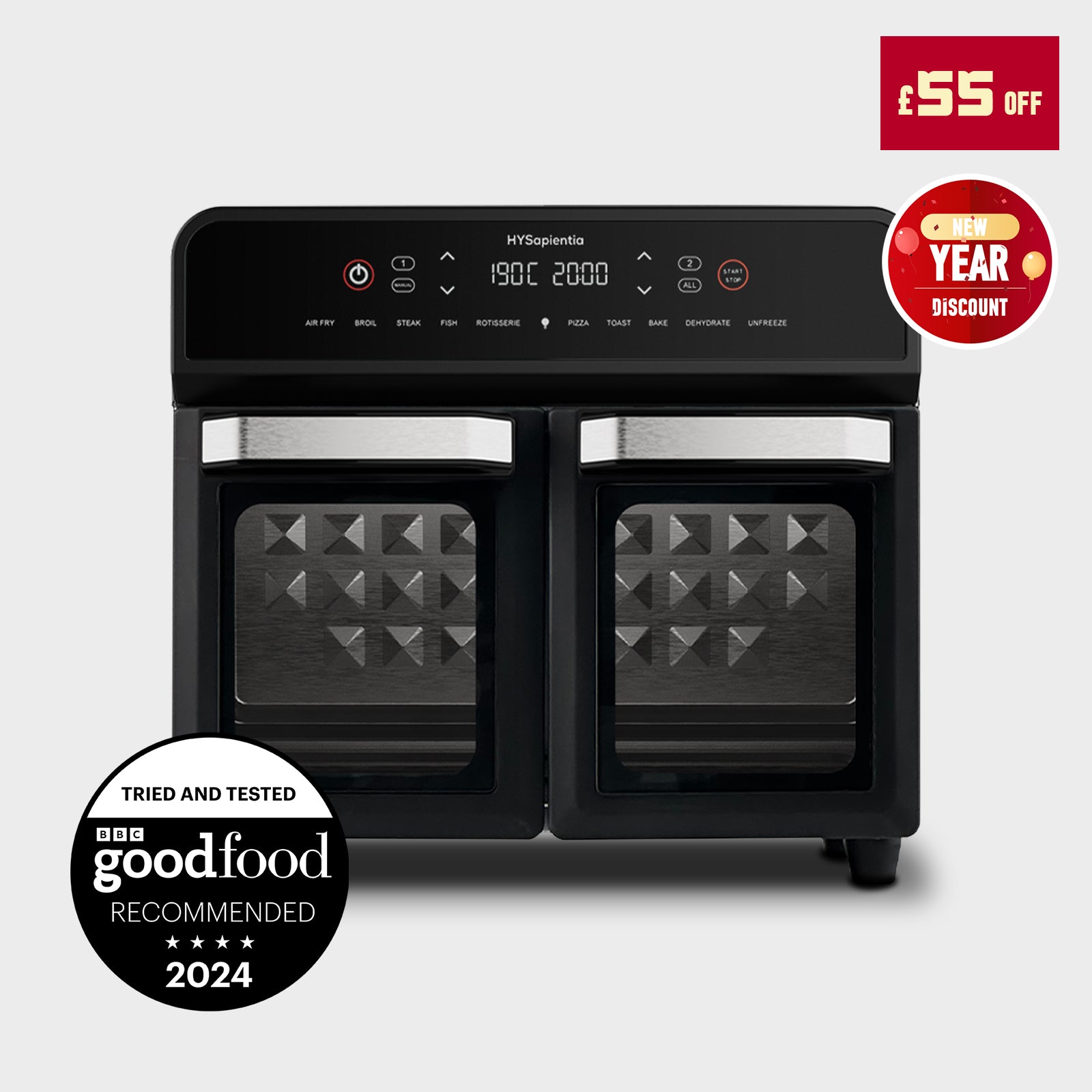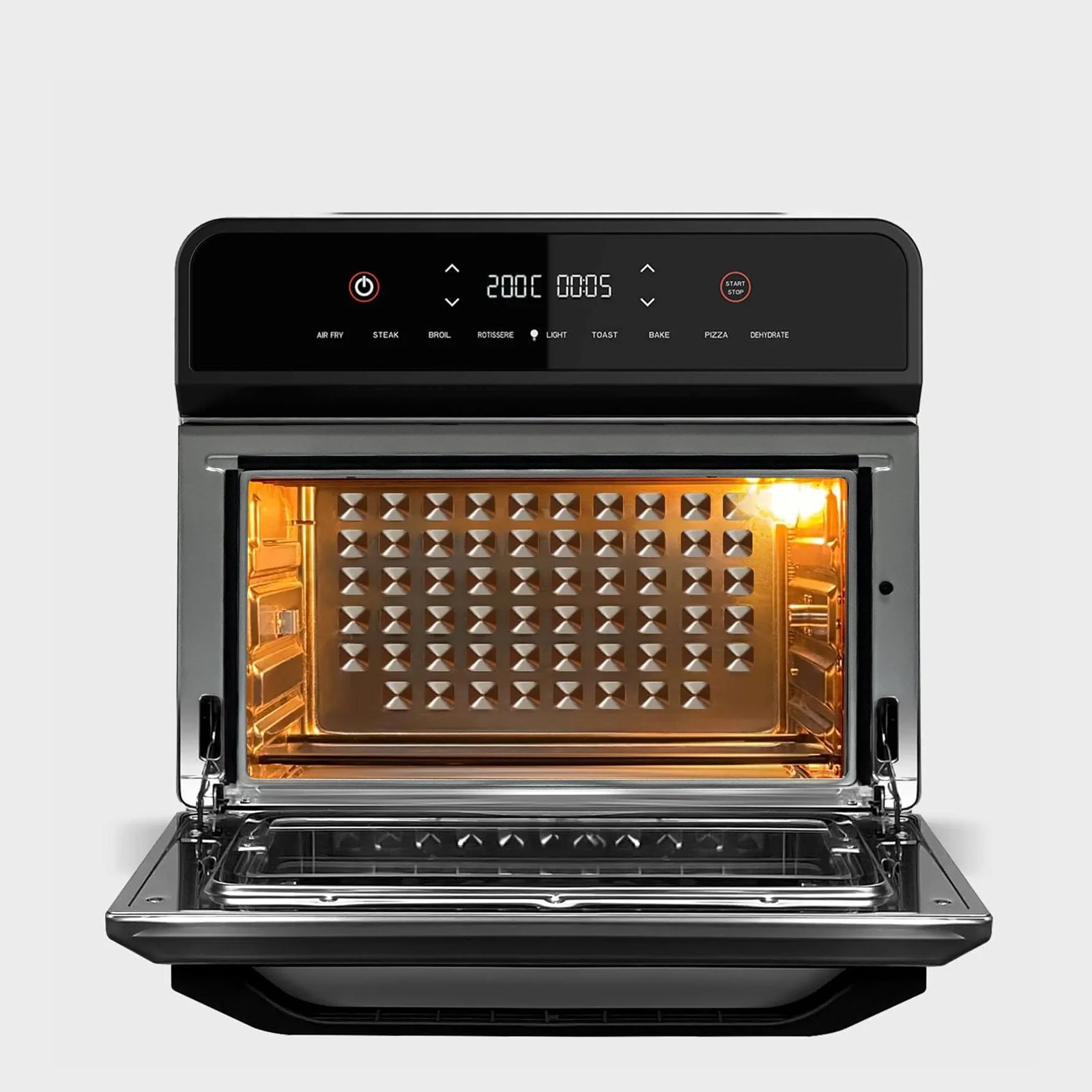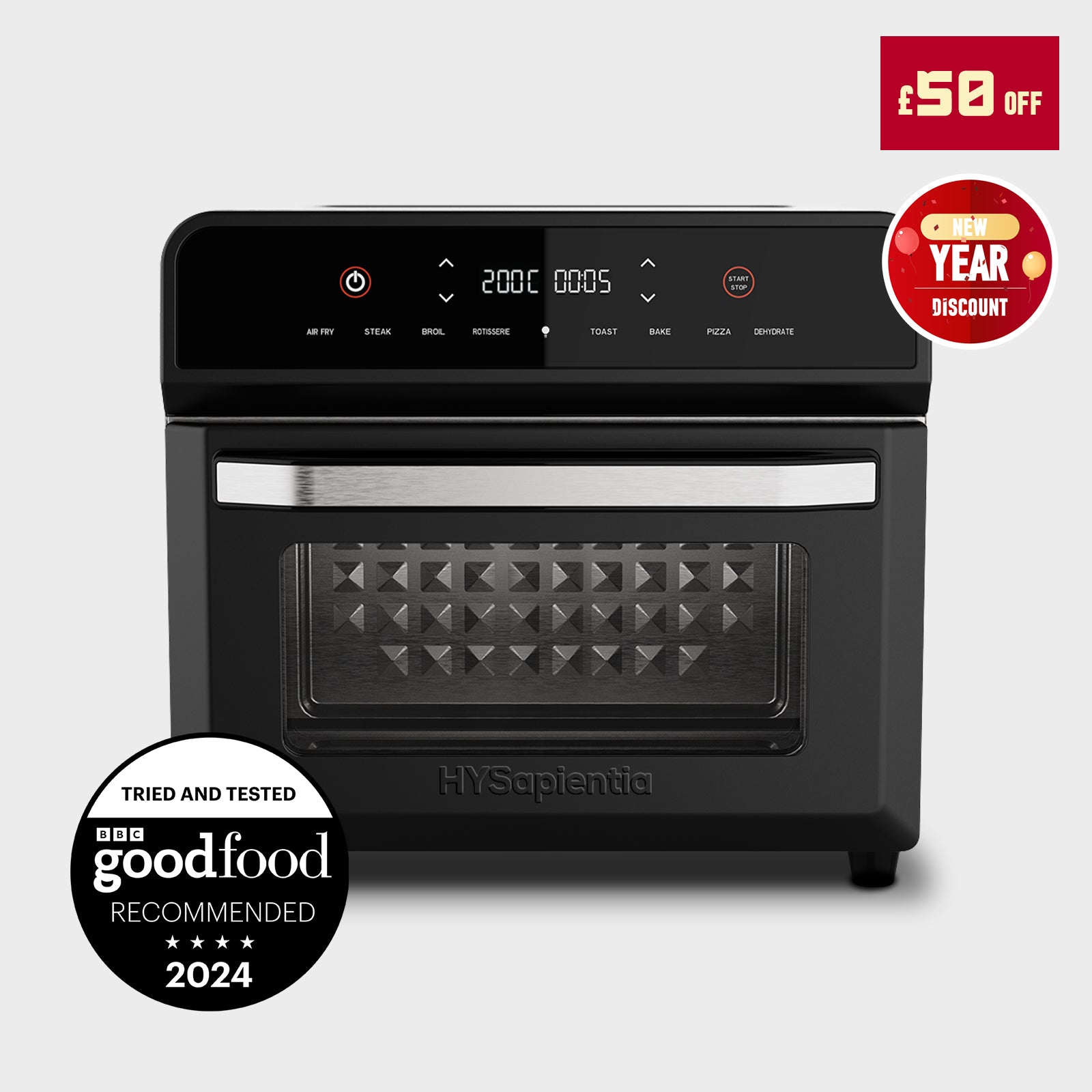Bringing home a new air fryer is always exciting—imagine all the delicious, healthier meals you'll be whipping up in no time! But once you’ve unpacked your shiny new kitchen appliance, you might find yourself wondering: where’s the best place to put it? This is where HYSapientia steps in to lend a hand. In this article, we’re diving into the top placement tips for your air fryer, ensuring both style and practicality in your kitchen setup. We’ll discuss everything from safety considerations to space optimization, and even how to seamlessly blend your air fryer with your kitchen’s aesthetic. Our mission is to help you find the perfect spot for your air fryer, making your cooking experience as enjoyable and hassle-free as possible. Ready to transform your kitchen? Let’s get started!
1. Safety Considerations
Fire Prevention:
To avoid fire hazards, keep your air fryer away from flammable materials such as paper towels, curtains, and wooden surfaces. Make sure it’s placed on a heat-resistant surface and at a safe distance from other appliances. It’s crucial to avoid any situations where the air fryer’s heating element might ignite nearby materials. For added safety, consider installing a smoke detector in your kitchen if you don’t already have one.
Further reading:Addressing Consumer Concerns: How to Prevent Air Fryer Fire Hazards
Avoid Burns:
Position the air fryer in a spot where it’s not easily bumped or touched accidentally. A sturdy, flat countertop is ideal to prevent tipping and ensure stability during use. When choosing a location, think about the traffic flow in your kitchen. Avoid placing the air fryer where people frequently walk by, as this increases the risk of accidental burns.
Non-Slip Surface:
Ensure that the surface you choose is non-slip. The vibrations from the air fryer’s heating element during operation can cause it to shift, potentially leading to accidents. If your countertops are particularly smooth or glossy, consider placing a non-slip mat underneath the air fryer to keep it securely in place.
2. Convenience in Usage
Operational Ease:
Place the air fryer in a location that’s easy to reach. Ideally, it should be on a countertop that doesn’t require bending or stretching. This makes it easier to monitor cooking progress and access the controls. Consider the height of the counter as well; it should be at a comfortable level to avoid straining your back.
Cleaning Ease:
Choose a spot that is easy to clean, as air fryers can generate splatters of oil and food particles. Keep it away from areas that are difficult to wipe down, like corners and tight spaces. To make cleaning easier, you might want to keep some cleaning supplies like paper towels and a mild cleaning spray nearby. Regularly wiping down the area around the air fryer will help maintain a clean and hygienic kitchen.
Frequent Use:
If you use your air fryer often, keep it in a location where it’s easy to access and not stored away in a cupboard. This encourages regular use and integrates the appliance into your daily cooking routine. Think about how you use your kitchen and try to place the air fryer in a spot that complements your cooking habits. For instance, if you often use it to reheat leftovers, placing it near the fridge might be a good idea.
3. Space Optimization and Organization
Countertop Layout:
Find a place on your countertop that doesn’t interfere with your primary cooking area. This way, you can continue using your main workspaces without the air fryer getting in the way. Consider creating a designated small appliance area on your countertop where you can group items like the air fryer, toaster, and coffee maker together.
Corner Utilization:
Utilize corner spaces that are often underused. Corner countertops or kitchen islands can be perfect spots for placing your air fryer without disrupting the flow of your kitchen. You can also consider corner shelves or cabinets specifically designed to hold small appliances. These can help keep your air fryer accessible while maximizing your countertop space.
Wall Mounts and Shelves:
Consider using wall-mounted shelves or dedicated kitchen appliance shelves to keep your air fryer off the main countertop. This not only saves space but also keeps your kitchen looking organized and clutter-free. When installing shelves, ensure they are sturdy enough to hold the weight of the air fryer and allow for adequate ventilation.
4. Ventilation and Heat Dissipation
Away from Heat Sources:
Avoid placing the air fryer near stoves, ovens, or other heat-generating appliances. This helps prevent overheating and ensures the air fryer’s heating element operates efficiently. Keeping it away from other heat sources also reduces the risk of the air fryer causing the kitchen temperature to rise excessively, which can be uncomfortable.
Further reading:Air Fryer Troubleshooting Series Part 2: What to Do If My Air Fryer Overheats?
Ventilated Area:
Position the air fryer in a well-ventilated area to allow heat and steam to dissipate. Placing it near a window or under an exhaust fan can help manage the heat output and keep your kitchen cool. If your kitchen layout allows, placing the air fryer near a window or door that can be opened for additional ventilation is ideal.
Adequate Space:
Ensure there’s enough space around the air fryer for air circulation. This means leaving a few inches of clearance on all sides to prevent overheating and ensure safety. Overcrowding the area around your air fryer can lead to heat buildup, which can affect its performance and lifespan.
5. Power Source and Cable Management
Near an Outlet:
Place your air fryer near a power outlet to avoid the use of extension cords, which can be a tripping hazard. This also reduces the risk of electrical issues and keeps the setup neat. Ensure that the outlet you use is easily accessible and can handle the power requirements of the air fryer.
Cable Management:
Use cable organizers or clips to keep the power cord tidy and out of the way. This prevents clutter and potential accidents caused by tripping over loose cables. Proper cable management also helps protect the power cord from damage, which can occur if it is frequently tugged or bent.
Electrical Load:
Ensure the outlet you use can handle the power load of the air fryer, especially if it’s shared with other high-power appliances. This helps prevent overloading circuits and potential electrical hazards. If necessary, consult an electrician to ensure your kitchen's electrical system can support your air fryer's requirements.
6. Aesthetic Integration with Kitchen Design
Color Coordination:
Choose an air fryer that matches your kitchen’s color scheme. Many air fryers come in a variety of colors and finishes, so you can select one that complements your existing decor. If your kitchen has a modern look, a sleek stainless steel air fryer might be ideal. For a more traditional kitchen, consider a classic black or white model.
Design Style:
Whether your kitchen is modern, rustic, or industrial, there’s an air fryer design to match. For example, a sleek, stainless steel model fits well in a modern kitchen, while a retro-styled air fryer can enhance a vintage-themed space. Matching the design of your air fryer with other appliances and kitchen elements can create a cohesive and attractive look.
Showcase Area:
Create a dedicated showcase area for your air fryer and other small appliances. This can be a stylish way to display your gadgets and keep them easily accessible. Use decorative trays or mats to group items together, and consider adding some stylish jars or containers for accessories and tools related to your air fryer.
7. Child Safety
Out of Reach:
Place the air fryer on a high countertop or shelf that’s out of reach of young children. This prevents them from accidentally touching hot surfaces or tampering with the appliance. If your kitchen layout includes an island, consider placing the air fryer there as it is often higher and more isolated.
Safety Features:
Use an air fryer with built-in safety features such as automatic shut-off and cool-touch handles. These features provide an extra layer of protection and peace of mind. When shopping for an air fryer, check for certifications and reviews that highlight its safety features.
Supervision:
Always supervise the use of the air fryer, especially if children are nearby. Educate older children on the safe use of kitchen appliances to promote a safe cooking environment. Make sure children understand the importance of not touching or playing with the air fryer when it is in use or still hot.
Conclusion
Finding the perfect spot for your air fryer involves a delicate balance of safety, convenience, and aesthetics. When you thoughtfully consider these factors, you can ensure that your air fryer not only enhances your kitchen’s functionality but also integrates seamlessly into your overall design. This means thinking about how to place your air fryer where it is easy to use and access, while also keeping it in a spot that complements your kitchen’s look and feel. By strategically positioning your air fryer, you can enjoy all the benefits of this versatile kitchen appliance without compromising on style or practicality.
For those in the market for a top-notch air fryer, look no further than the HYSapientia 15L Large Digital Air Fryer Oven. Among the many air fryers for sale, this versatile appliance stands out by combining functionality with style. It features a spacious 15L capacity, user-friendly digital controls, and a sleek design that complements any kitchen decor. It’s perfect for preparing large meals for the family or hosting dinner parties, making your cooking experience both enjoyable and efficient.

